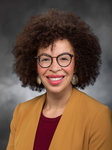

Addiction is an international issue with local consequences, as talk of how best to combat an ongoing and deadly opioid epidemic is continually discussed at national, state and local levels.
Today, Washington lawmakers introduced House Bill 1499, which would decriminalize most instances of drug possession and expand treatment and support services.
According to the Washington State Department of Health, an average of two people die from an opioid overdose every day in the state. In Thurston County, between January and June, 16 people died of overdoses, with nine being from opioids.
Incarceration of people suffering from addiction has become an increasingly contested topic of debate in many parts of the country. On Monday, Oregon’s ballot measures 110 went into effect, making it the first state in the nation to decriminalize personal use amounts of drugs, wrote Oregon Public Broadcasting.
Two alternative programs in Thurston County
Efforts within Thurston County to divert non-violent offenders to social resources rather than a jail cell have received both state and national support, in the form of grant funding.
HB 1499, called the Pathways to Recovery Act, was introduced by the bill’s sponsor, State Rep. Lauren Davis, D-Shoreline, and co-sponsor Rep. Kirsten Harris-Talley, D-Seattle, It’s supported by various medical advocacy and civil rights organizations like Treatment First Washington, Care First Washington and Washington Recovery Alliance.
“The opposite of addiction is not sobriety, it’s connection,” said Davis during a press conference this afternoon. “In all my years of work in this field, I can say that what keeps people from seeking treatment boils down to two things: one, they don’t believe recovery is possible for them, and two, they don’t believe they’re worthy of recovery.”
Davis serves as executive director of Washington Recovery Alliance, an advocacy nonprofit.
The bill itself decriminalizes personal use amounts of drugs, defined as “the maximum amount of a particular [drug] that the authority has determined to be consistent with personal, non-prescribed use patterns of people with substance use disorder.”
The decriminalization part is based on the widening belief that jail time and legal consequences often present more problems than rehabilitative solutions for people suffering from addiction, creating a vicious cycle.
“The legislature finds that substance use disorder is among the only health conditions for which a person can be arrested for displaying symptoms. People use drugs to escape the painful reality of their lives and circumstances, including trauma that’s never had a chance to heal,” the bill reads.
Harris-Talley noted first responders are often thrust into positions they’re not trained for when they encounter someone experiencing many of the negative effects of addiction.
“Our current system doesn’t equip our first responders with the tools to give the help they so desperately want to … when they encounter those circumstances,” said Harris-Talley
Davis likened current addiction services to a three-legged stool — one where Washington only has one leg so far. The Pathway to Recovery Act, she said, provides the missing pieces.
“We pay for treatment over and over, because insurance covers it. But we failed to fund the outreach on the front end and the recovery support services on the back end that are absolutely foundational to fostering sustained recovery,” Davis said.
Building this new continuum of care would be funded piecemeal from a federal substance abuse block grant, money obtained through opioid manufacturing lawsuits and state general funds saved from expected reductions in the Department of Corrections budget needs.
Comments
No comments on this item Please log in to comment by clicking here